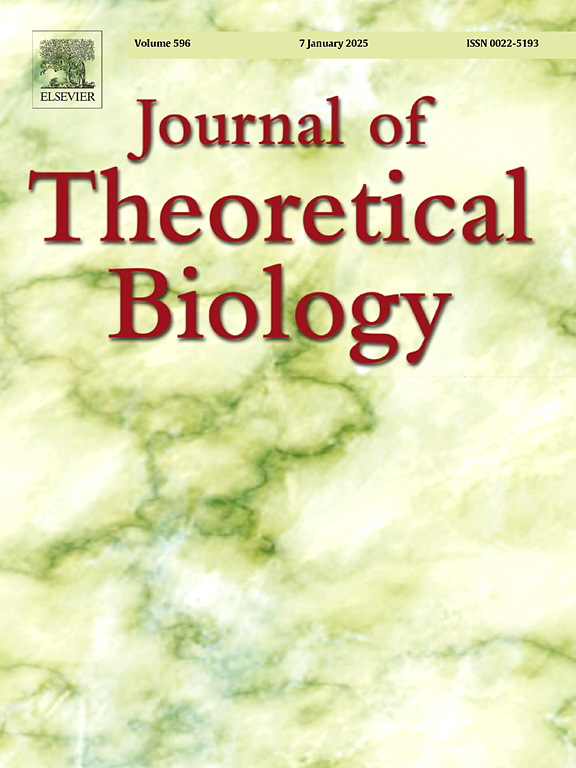Convergence of reputations under indirect reciprocity
IF 1.9
4区 数学
Q2 BIOLOGY
引用次数: 0
Abstract
Previous research has shown how indirect reciprocity can promote cooperation through evolutionary game theoretic models. Most work in this field assumes a separation of time-scales: individuals’ reputations equilibrate at a fast time scale for given frequencies of strategies while the strategies change slowly according to the replicator dynamics. Much of the previous research has focused on the behaviour and stability of equilibria for the replicator dynamics. Here we focus on the underlying reputational dynamics that occur on a fast time scale. We describe reputational dynamics as systems of differential equations and conduct stability analyses on their equilibria. We prove that reputations converge to a unique equilibrium under a solitary observer model for each of the five standard norms and whether assessments are public or private. These results confirm a crucial but previously understudied assumption underlying the theory of indirect reciprocity for the most studied set of norms.
间接互惠下的声誉趋同。
以往的研究表明,间接互惠可以通过进化博弈论模型促进合作。该领域的大多数研究都假定了时间尺度的分离:对于给定的策略频率,个体的声誉会在快速的时间尺度上达到平衡,而策略则会根据复制者的动态缓慢变化。以往的研究大多集中于复制器动态平衡的行为和稳定性。在此,我们将重点放在发生在快速时间尺度上的潜在声誉动态上。我们将声誉动力学描述为微分方程系统,并对其均衡状态进行稳定性分析。我们证明,对于五种标准规范中的每一种,无论评估是公开的还是私下的,在孤独观察者模型下,声誉都会收敛到一个唯一的均衡点。这些结果证实了间接互惠理论的一个关键假设,但这一假设以前未得到充分研究。
本文章由计算机程序翻译,如有差异,请以英文原文为准。
求助全文
约1分钟内获得全文
求助全文
来源期刊
CiteScore
4.20
自引率
5.00%
发文量
218
审稿时长
51 days
期刊介绍:
The Journal of Theoretical Biology is the leading forum for theoretical perspectives that give insight into biological processes. It covers a very wide range of topics and is of interest to biologists in many areas of research, including:
• Brain and Neuroscience
• Cancer Growth and Treatment
• Cell Biology
• Developmental Biology
• Ecology
• Evolution
• Immunology,
• Infectious and non-infectious Diseases,
• Mathematical, Computational, Biophysical and Statistical Modeling
• Microbiology, Molecular Biology, and Biochemistry
• Networks and Complex Systems
• Physiology
• Pharmacodynamics
• Animal Behavior and Game Theory
Acceptable papers are those that bear significant importance on the biology per se being presented, and not on the mathematical analysis. Papers that include some data or experimental material bearing on theory will be considered, including those that contain comparative study, statistical data analysis, mathematical proof, computer simulations, experiments, field observations, or even philosophical arguments, which are all methods to support or reject theoretical ideas. However, there should be a concerted effort to make papers intelligible to biologists in the chosen field.

 求助内容:
求助内容: 应助结果提醒方式:
应助结果提醒方式:


